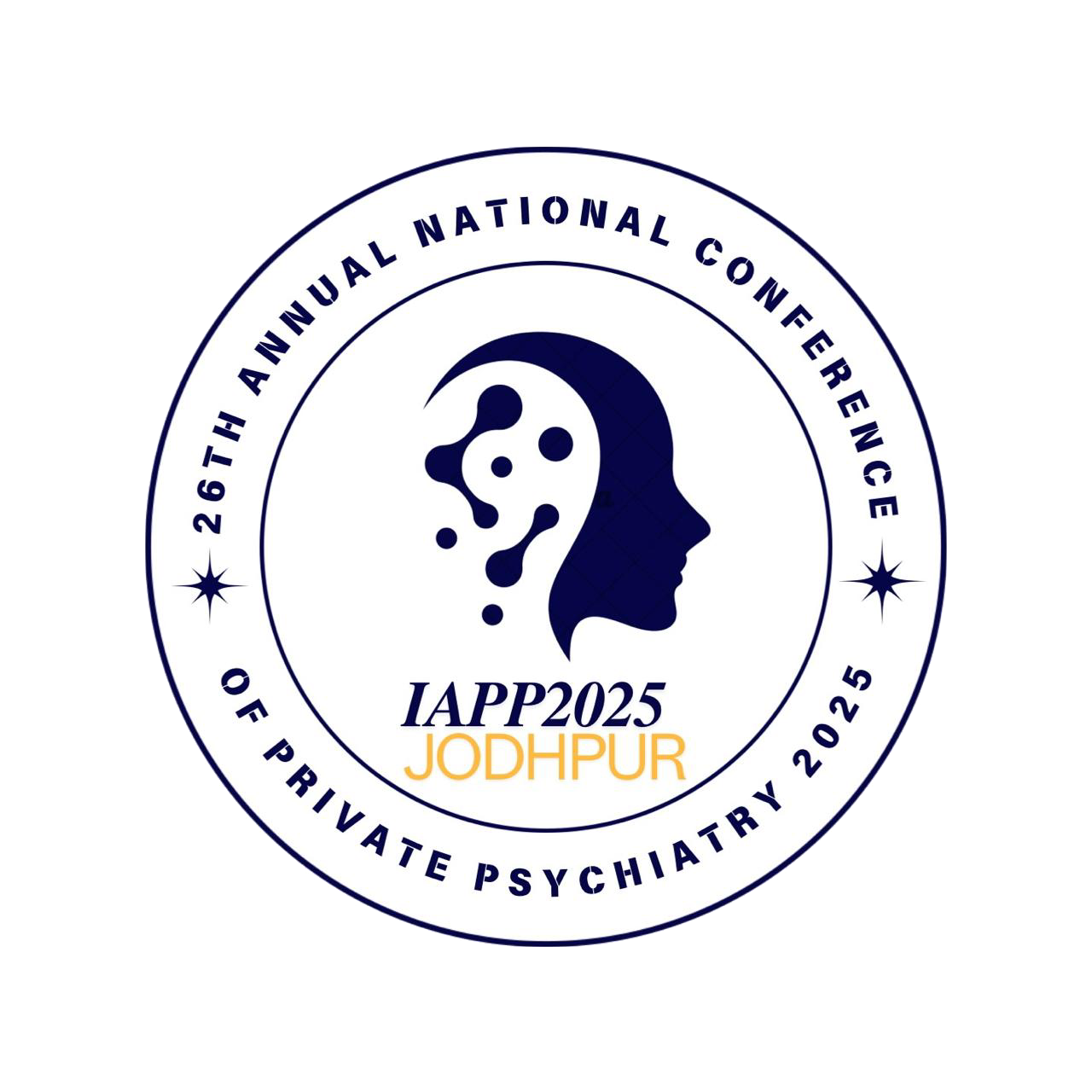The Last date of abstract submission is extended till 30th September 2025
ANCIAPP 2025 - Abstract Submission Guidelines
1.General Guidelines
- Abstracts must be original and should not have been published in any conference, journal, or any other platform.
- The research should be conducted within the past year to ensure its relevance and novelty.
- Abstracts should be relevant to psychiatry, neuromodulation, mental health, or related disciplines.
- Ethical compliance: All research involving human subjects should have appropriate ethical clearances.
2. Abstract Categories
- Original Research - Novel studies presenting new findings in psychiatry and mental health.
- Clinical Case Reports - Unique, rare, or complex psychiatric cases with valuable insights.
- Systematic Reviews & Meta-Analyses - Well-structured reviews that synthesize existing research.
- Innovative Practices & Interventions - New advancements in psychiatric treatment,technology, or healthcare management.
- Community & Public Health Initiatives - Mental health awareness, policies, and outreach programs.
- Addiction Psychiatry & Substance Use Disorders - Research on addiction, rehabilitation, and related therapies.
- Neuroscience & Neuromodulation in Psychiatry - Studies related to brain stimulation techniques, neuroplasticity, and technological advancements in psychiatry.
3. Abstract Structure
- Title: Concise and representative of the study.
- Authors & Affiliations: Full names, designations, and institutional details.
- Introduction: Background, research objective, and significance.
- Methods: Study design, sample size, methodology, tools, and statistical analysis.
- Results: Key findings (numerical data, graphs, or tables may be referenced).
- Conclusion: Implications, limitations, and potential impact on psychiatry.
- Keywords: 3-5 relevant keywords.
4. Submission Guidelines
- Word Limit: 250-300 words.
- Formatting: Times New Roman, 12 pt, single-spaced.
- File Format: DOC only.
- Submission Portal: https://iappraj2025.com/?p=registration/user.
- Deadline: The Last date of abstract submission is extended till 30th Sept. 2025.
5. Review & Acceptance
- All abstracts will undergo double-blind peer review by the scientific committee.
- Selection will be based on originality, relevance, and scientific merit.
- Accepted abstracts may be invited for oral or poster presentations.
- The best research papers will receive certificates and awards.
ANCIAPP 2025 - Abstract Categories
1. General Psychiatry Topics (Widely Researched & Clinically Relevant)
Advances in Psychopharmacology
- New-generation antidepressants, antipsychotics, and mood stabilizers.
- Long-acting injectables in schizophrenia and bipolar disorder.
- Role of pharmacogenomics in drug selection.
Neuromodulation in Psychiatry
- Clinical applications of Transcranial Magnetic Stimulation(TMS), Deep Brain Stimulation (DBS), and Vagus Nerve Stimulation (VNS).
- Effectiveness of tDCS (Transcranial Direct Current Stimulation) in depression and OCD.
- Real-world evidence and patient outcomes.
Psychoneuroimmunology & Mental Health
- Role of inflammation, cytokines, and immune dysregulation in psychiatric disorders.
- Stress-induced immune responses in depression, schizophrenia, and bipolar disorder.
- Future treatment strategies targeting neuroinflammation.
Sleep Disorders in Psychiatry
- Impact of sleep disturbances on depression, anxiety, and psychosis.
- The bidirectional link between insomnia and psychiatric conditions.
- Newer interventions for sleep-related psychiatric disorders.
Substance Use and Behavioral Addictions
- Advances in the management of opioid, alcohol, and nicotine dependence.
- Emerging behavioral addictions: Internet gaming disorder,social media addiction.
- Neuroscientific approaches to addiction therapy.
Women’s Mental Health
- Hormonal influences on psychiatric conditions: PMDD, menopause, postpartum depression.
- Perinatal psychiatry: Management of psychiatric disorders during pregnancy.
- Gender-specific psychiatric care: Challenges and innovations
Psychosexual Disorders
- Understanding and management of psychosexual dysfunctions.
- Emerging treatments and therapy approaches.
Consultation-Liaison Psychiatry
- Psychiatric care in general hospital settings
- Interdisciplinary approaches to mental health care
2. Innovative & Emerging Topics (Evidence-Based, Forward-Thinking Research Areas)
Digital Psychiatry & Telepsychiatry
- AI-driven diagnostics in psychiatry: Current evidence and challenges.
- Effectiveness of mental health apps and digital therapeutics.
- Telepsychiatry models: Expanding psychiatric services to remote areas.
Psychedelics in Psychiatry
- Ketamine, MDMA, and Psilocybin in depression and PTSD: Ongoing clinical trials.
- Mechanisms of action and regulatory challenges.
- Future directions for psychedelic-assisted psychotherapy.
Genetics & Personalized Psychiatry
- Pharmacogenomics in psychiatry: Tailoring treatments for better outcomes.
- The role of genetic risk factors in schizophrenia, bipolar disorder, and depression.
- Ethical considerations in genetic-based psychiatric interventions.
Mental Health & Climate Change
- Impact of climate change on psychiatric illnesses: Anxiety, PTSD, and depression.
- Mental health challenges during natural disasters and displacement.
- Public health interventions to address climate-induced mental health burdens.
Artificial Intelligence in Psychiatry
- AI-driven mental health interventions.
- Predictive analytics for early diagnosis and treatment.
Neuroplasticity & Neuromodulation
- Advances in understanding brain plasticity.
- New therapies enhancing neural adaptability.
Protein Kinase Inhibitors in Psychiatry
- Exploring their role in psychiatric disorders.
- Potential applications in treatment-resistant conditions.
Stem Cell Therapy in Psychiatry
- Current research and future prospects.
- Ethical and practical considerations.
Electroencephalography (EEG) in Psychiatry
- Applications in diagnosis and treatment monitoring.
- New research and technological advancements.
New Drugs in Psychiatry
- Recent developments in psychotropic medications.
- Future drug discovery in mental health care.
New Research in Dementia
- Advances in diagnosis and management.
- Emerging treatments and interventions.
Migraine and its Psychiatric Aspects
- Understanding the psychiatric comorbidities of migraines.
- Integrative treatment approaches.
Neurointervention in Psychiatry
- Interventional approaches to psychiatric conditions.
- Innovations in neurotherapeutic strategies.
Epilepsy and Psychiatry
- Psychiatric implications of epilepsy.
- Advances in treatment and management.

